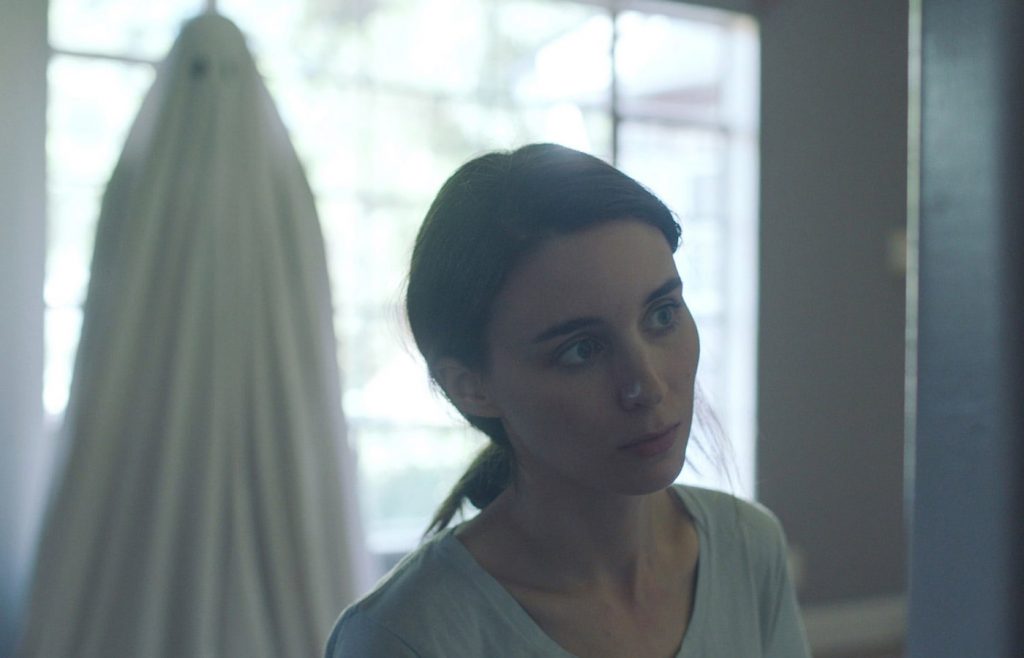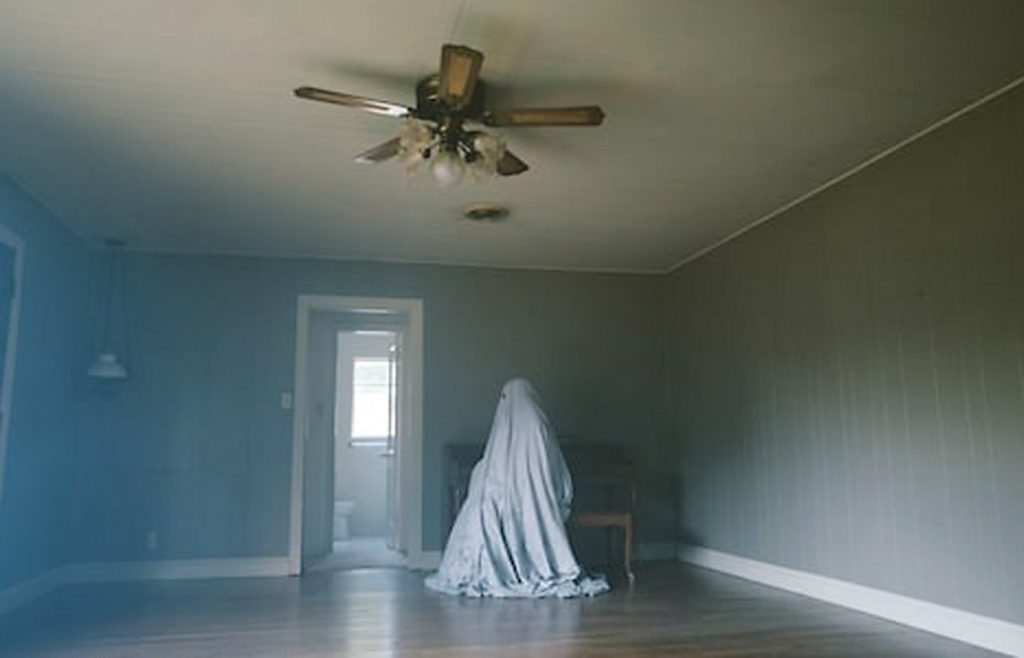
This movie is not for everyone. Some may find it a profound contemplation of life and death, while others might find the slow, cryptic musing a challenge to sit through. Personally, I felt unentertained yet mystically intrigued, and since viewing it—if you’ll forgive the pun—haunted.
A Ghost Story does not involve much dialogue or acting. It reflects on the passage of time. And by design, the film moves so slowly and quietly that it seems to be standing still, a challenge for brains that run on caffeine and instant-messaging. But if this quiet pace succeeds in making us restless, it also triumphs in conveying the complex, moment-to-moment experience of grief, with all of its jagged edges of loss, loneliness, longing, vulnerability, and most of all, attachment.
The movie’s young couple is identified by the actors’ initials instead of character names, for reasons I’ll be happy to explain as soon as I figure them out. M is the grieving wife, played by Rooney Mara. Casey Affleck plays her husband, C. He’s a musician, and he wrote a song for his wife, “I Get Overwhelmed” (actually written by Daniel Hart), which provides an emotional backdrop to the movie, though some of us appreciated the melody less than the filmmaker did. But enough about me.

C dies early on, leaving M alone. Well, almost alone. C dwells in the house as a ghost. He watches his wife grieve and stands guard in his home, a humble one-story in a desolate Texas neighborhood. As a ghost, he’s a constant observer of everything that happens within those walls, while remaining invisible to every visitor and inhabitant. And curiously, this ghost is not some mythical CGI entity. He’s more like a cheap Halloween costume, draped in a white morgue sheet with two black oval eyes. This vision seems so primitive, but then, so is a ghost.
Regarding ghosts, we are certainly familiar with their appearance in horror stories, films, and literature, though typically as more minor characters. In the plays of Shakespeare, the ghosts of dead characters return to communicate with the living, usually to relay a message or a warning about the future. But the ghost in A Ghost Story is the main character, and he’s not there to deliver a message. He seems determined to extend his time among the living and the life he was not prepared to leave. Maybe his very existence as a ghost is the question, and he’s there to find some answers.
Writer-director David Lowery (Ain’t Them Bodies Saints) shuns fancy scenery and special effects to manage his $100,000 micro-budget, and to maintain the austerity that resonates with the story. A story that’s telling us something. A monologue in the film gives us a clue, with its insight into human nature. It’s delivered with great length and fanfare by a house guest, played by Will Oldman. And here’s the gist of it: “A writer writes a novel, a songwriter writes a song . . . and maybe the whole world will remember you or maybe just a couple of people, but you do what you can to make sure you’re still around after you’re gone.”
Human life is precious. We want it to have meaning and to last a long time. But life and legacy are two different things that should not be confused. A Ghost Story might be a cautionary lesson about attachment to the past. Maybe there are choices that were overlooked. And maybe the directive is to look again.
